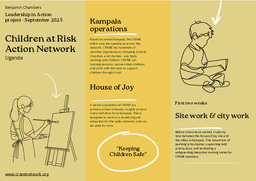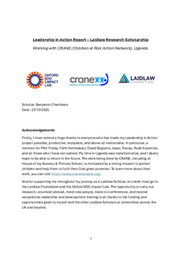LiA Week 3 - mzungu, mzungu!
This week marked the start of school term 3, and the return of all the pupils here at House of Joy. They were excited to meet me, their temporary mzungu teacher, and I was equally looking forward to getting stuck in with school life.
It took quite a bit of patience to adjust to the school culture here. Classroom teaching is generally extremely dry in Uganda, focused on rote learning to prepare for exams. It was especially frustrating to see how this school, blessed with amazing outdoor spaces, limited itself to lectures from the blackboard.
It has been a joy though to introduce some new teaching methods bit by bit – encouraging more engagement from children during lessons has helped the other teachers to spot areas or topics where certain children are struggling. Coming in to work within a foreign education system is another area where I have consciously had to take an open mind, to take in the differences objectively and quickly.
Recognising the disparity in living standards is important. Here wages are far lower than we may be used to – a cleaner at the school would earn £20-40 a month. The headteacher earns about £400-500 a month, which is a very good salary.
One sobering moment was during a debate club session. Prompting a group to give reasons why home/school was better than the other, one child told me he preferred school because “we don’t get beaten here”. Others agreed with him. Even this is a huge sign of progress – across much of Uganda, the historical culture of corporal punishment in schools is stubbornly persistent. There has been progress, but as an outsider it takes plenty of humility to react appropriately to the various differences in history and culture that I encounter.
Over the final couple of weeks, I hope to integrate better with the other teachers in the school, so that I can feel better able to work with them. Reflecting on their own approaches and attitudes when teaching can yield really useful thoughts and improvements, so hopefully by the time I finish we will have worked on bringing in more interactive and engaging teaching practices.


Please sign in
If you are a registered user on Laidlaw Scholars Network, please sign in